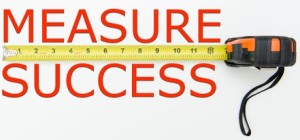Fighting the funk

From time to time every professional deals with it. Periods during which we go through the motions. We feel tired, emotionally drained and in some extreme cases sometimes unmotivated and unchallenged. Nonetheless, we put our heads down and press on. In some instances these feelings generally go away after some time, however during this period things can surely be stressful. I dub this feeling,
"The Funk". The funk is really a mental state of being. There are many potential contributing factors that can put us in such a state and the focus of today’s blog is to help us to be more aware so that we can address them in an effective manner.
Have you ever worked with someone who is always bubbly? Every morning they have a smile on their face; they are chatty and are usually the one who brightens up the office. The one day that this individual walks into the office and is not their usual self, everyone takes notice. Why? Because for someone like that to be withdrawn, it often means that something is going on. If that one day turns into weeks or months there is a great cause for concern. The same can be said when the opposite occurs-- a typically withdrawn or reserved individual becomes very loud, curt and abrasive for no particular reason. Everyone takes notice! It is the change in behavior that is immediately apparent to everyone around such examples, but what about the reasons behind them?
In my book,
How To Make It From The Classroom To The Cubicle, which was first published back in March 2013, I wrote a section entitled,
“People are People”. This is something I also have addressed in blogs, but particularly during the training workshops that I conduct. The premise is that because we have lives and aspirations outside of the workplace it is very easy that these outside factors can affect our disposition when we do come into the workplace. It is impossible to keep the different aspects of our lives from intersecting because after all we are only human. Imagine that "bubbly" person mentioned above. They could have just gotten some bad news about their child or they could be in the middle of a family crisis. Imagine if it were you dealing with a situation like that, coming to work knowing that the moment you are through you have to return to the same set of circumstances at home? Imagine all of that with the added stress, pressure, politics and social interactions that are part of the workplace. It does not seem so simple when viewed from this perspective!
That said there are two different angles with which we can take when we fight the funk at the work.
Our Approach: things we can do for ourselves and
Management's Approach: things management can do on behalf of the employee.
Let's start with the employee's perspective. If you as an employee are dealing with a set of personal matters that are starting to encroach on your ability to function effectively at work then something has to be done. You need to speak up to ensure that someone understands the struggles that you are going through and if possible can facilitate some sort of relief. The bottom line is that at some point you may have to trust someone with personal details about your life. However, it does not mean that you should go babbling off your business to any ear that wants to listen. You should to be very strategic with whom you let know what is taking place in your life. A member of the human resources team or someone in management might be ideal candidates, as they can potentially offer you helpful options on behalf of the company. Be mindful that the passive approach: wait until someone notices you before you speak of your dilemma, could lead to more stress and anxiety because that help may never come. Trust me, others do notice, but many are afraid to get involved with other people's problems, primarily because they have problems and issues of their own.
From management’s perspective, they must pay careful attention to their employees and step in when things seem amiss to ensure that individuals are getting the right assistance as early as possible. Any good leader should be cognizant of the fact that at any given time, people who you are leading may be dealing with issues that stem from factors that are both internal and external to the workplace. That said, a leader should not wait until those times to 'pry' or try to build trust. It may be too late. A leader should encourage open dialogue and interaction that fosters trusting relationships between his or her staff members and him or herself. Hence, when matters do arise, there is some foundation of trust that the employee can hopefully feel comfortable enough to step on.
These two perspectives however can give the impression that only serious matters can affect your mindset at work. This is not true. If you are in the doldrums at work because you feel like you don't fit in, or feel like you don't belong, or feel like opportunities are passing you by, you too can affect change. I have often heard the sentiment from people that I encounter who feel like they are being overlooked at work and that it’s management's responsibility to take notice. While this is somewhat true, it is equally your responsibility to speak up and affect change. You cannot feel alienated on an assumption. It is far more effective to speak up and bring the matter to management's attention first before casting any judgment or resigning yourself to feelings of being cast aside.
Speaking up is not a license to become a complainer. It is simply exercising your right as an individual to express yourself. When that is done, you should lift your head and by extension your demeanor and give your best until things turn around. When management knows that you are unhappy about something and you still exhibit the right attitude, you stand out. When you have the opportunity to whine and complain, but instead you raise your concerns in a polite and direct manner, you stand out. When you stand out, you increase the chances of things changing for the better.
The main takeaway today is this: the funk is real. From time to time we are going to feel like we don't want to be at work and the reasons can be numerous. Recognizing those moments and effectively identifying and dealing with the factors that cause them can make a positive difference on your career. For things that are fixable your responsibility is to fix them. For things that are more complicated, HR and management can assist you in dealing with your situation. However, if after careful assessment you determine that the factors that affect you are a result of the work environment and after an honest effort they cannot be changed, then you should exercise your freedom of choice and explore other job options. Your career depends on it.
Until next time remember: as long as you have life you should live it to your fullest potential.
Tags: career,
career development,
Deon,
Deon E Duncan,
goals,
How to make it from the classroom to the cubicle,
managing,
self development,
self management,
success,
vision,
weekly wisdom  From time to time every professional deals with it. Periods during which we go through the motions. We feel tired, emotionally drained and in some extreme cases sometimes unmotivated and unchallenged. Nonetheless, we put our heads down and press on. In some instances these feelings generally go away after some time, however during this period things can surely be stressful. I dub this feeling, "The Funk". The funk is really a mental state of being. There are many potential contributing factors that can put us in such a state and the focus of today’s blog is to help us to be more aware so that we can address them in an effective manner.
Have you ever worked with someone who is always bubbly? Every morning they have a smile on their face; they are chatty and are usually the one who brightens up the office. The one day that this individual walks into the office and is not their usual self, everyone takes notice. Why? Because for someone like that to be withdrawn, it often means that something is going on. If that one day turns into weeks or months there is a great cause for concern. The same can be said when the opposite occurs-- a typically withdrawn or reserved individual becomes very loud, curt and abrasive for no particular reason. Everyone takes notice! It is the change in behavior that is immediately apparent to everyone around such examples, but what about the reasons behind them?
In my book, How To Make It From The Classroom To The Cubicle, which was first published back in March 2013, I wrote a section entitled, “People are People”. This is something I also have addressed in blogs, but particularly during the training workshops that I conduct. The premise is that because we have lives and aspirations outside of the workplace it is very easy that these outside factors can affect our disposition when we do come into the workplace. It is impossible to keep the different aspects of our lives from intersecting because after all we are only human. Imagine that "bubbly" person mentioned above. They could have just gotten some bad news about their child or they could be in the middle of a family crisis. Imagine if it were you dealing with a situation like that, coming to work knowing that the moment you are through you have to return to the same set of circumstances at home? Imagine all of that with the added stress, pressure, politics and social interactions that are part of the workplace. It does not seem so simple when viewed from this perspective!
That said there are two different angles with which we can take when we fight the funk at the work. Our Approach: things we can do for ourselves and Management's Approach: things management can do on behalf of the employee.
Let's start with the employee's perspective. If you as an employee are dealing with a set of personal matters that are starting to encroach on your ability to function effectively at work then something has to be done. You need to speak up to ensure that someone understands the struggles that you are going through and if possible can facilitate some sort of relief. The bottom line is that at some point you may have to trust someone with personal details about your life. However, it does not mean that you should go babbling off your business to any ear that wants to listen. You should to be very strategic with whom you let know what is taking place in your life. A member of the human resources team or someone in management might be ideal candidates, as they can potentially offer you helpful options on behalf of the company. Be mindful that the passive approach: wait until someone notices you before you speak of your dilemma, could lead to more stress and anxiety because that help may never come. Trust me, others do notice, but many are afraid to get involved with other people's problems, primarily because they have problems and issues of their own.
From management’s perspective, they must pay careful attention to their employees and step in when things seem amiss to ensure that individuals are getting the right assistance as early as possible. Any good leader should be cognizant of the fact that at any given time, people who you are leading may be dealing with issues that stem from factors that are both internal and external to the workplace. That said, a leader should not wait until those times to 'pry' or try to build trust. It may be too late. A leader should encourage open dialogue and interaction that fosters trusting relationships between his or her staff members and him or herself. Hence, when matters do arise, there is some foundation of trust that the employee can hopefully feel comfortable enough to step on.
These two perspectives however can give the impression that only serious matters can affect your mindset at work. This is not true. If you are in the doldrums at work because you feel like you don't fit in, or feel like you don't belong, or feel like opportunities are passing you by, you too can affect change. I have often heard the sentiment from people that I encounter who feel like they are being overlooked at work and that it’s management's responsibility to take notice. While this is somewhat true, it is equally your responsibility to speak up and affect change. You cannot feel alienated on an assumption. It is far more effective to speak up and bring the matter to management's attention first before casting any judgment or resigning yourself to feelings of being cast aside.
Speaking up is not a license to become a complainer. It is simply exercising your right as an individual to express yourself. When that is done, you should lift your head and by extension your demeanor and give your best until things turn around. When management knows that you are unhappy about something and you still exhibit the right attitude, you stand out. When you have the opportunity to whine and complain, but instead you raise your concerns in a polite and direct manner, you stand out. When you stand out, you increase the chances of things changing for the better.
The main takeaway today is this: the funk is real. From time to time we are going to feel like we don't want to be at work and the reasons can be numerous. Recognizing those moments and effectively identifying and dealing with the factors that cause them can make a positive difference on your career. For things that are fixable your responsibility is to fix them. For things that are more complicated, HR and management can assist you in dealing with your situation. However, if after careful assessment you determine that the factors that affect you are a result of the work environment and after an honest effort they cannot be changed, then you should exercise your freedom of choice and explore other job options. Your career depends on it.
Until next time remember: as long as you have life you should live it to your fullest potential.
From time to time every professional deals with it. Periods during which we go through the motions. We feel tired, emotionally drained and in some extreme cases sometimes unmotivated and unchallenged. Nonetheless, we put our heads down and press on. In some instances these feelings generally go away after some time, however during this period things can surely be stressful. I dub this feeling, "The Funk". The funk is really a mental state of being. There are many potential contributing factors that can put us in such a state and the focus of today’s blog is to help us to be more aware so that we can address them in an effective manner.
Have you ever worked with someone who is always bubbly? Every morning they have a smile on their face; they are chatty and are usually the one who brightens up the office. The one day that this individual walks into the office and is not their usual self, everyone takes notice. Why? Because for someone like that to be withdrawn, it often means that something is going on. If that one day turns into weeks or months there is a great cause for concern. The same can be said when the opposite occurs-- a typically withdrawn or reserved individual becomes very loud, curt and abrasive for no particular reason. Everyone takes notice! It is the change in behavior that is immediately apparent to everyone around such examples, but what about the reasons behind them?
In my book, How To Make It From The Classroom To The Cubicle, which was first published back in March 2013, I wrote a section entitled, “People are People”. This is something I also have addressed in blogs, but particularly during the training workshops that I conduct. The premise is that because we have lives and aspirations outside of the workplace it is very easy that these outside factors can affect our disposition when we do come into the workplace. It is impossible to keep the different aspects of our lives from intersecting because after all we are only human. Imagine that "bubbly" person mentioned above. They could have just gotten some bad news about their child or they could be in the middle of a family crisis. Imagine if it were you dealing with a situation like that, coming to work knowing that the moment you are through you have to return to the same set of circumstances at home? Imagine all of that with the added stress, pressure, politics and social interactions that are part of the workplace. It does not seem so simple when viewed from this perspective!
That said there are two different angles with which we can take when we fight the funk at the work. Our Approach: things we can do for ourselves and Management's Approach: things management can do on behalf of the employee.
Let's start with the employee's perspective. If you as an employee are dealing with a set of personal matters that are starting to encroach on your ability to function effectively at work then something has to be done. You need to speak up to ensure that someone understands the struggles that you are going through and if possible can facilitate some sort of relief. The bottom line is that at some point you may have to trust someone with personal details about your life. However, it does not mean that you should go babbling off your business to any ear that wants to listen. You should to be very strategic with whom you let know what is taking place in your life. A member of the human resources team or someone in management might be ideal candidates, as they can potentially offer you helpful options on behalf of the company. Be mindful that the passive approach: wait until someone notices you before you speak of your dilemma, could lead to more stress and anxiety because that help may never come. Trust me, others do notice, but many are afraid to get involved with other people's problems, primarily because they have problems and issues of their own.
From management’s perspective, they must pay careful attention to their employees and step in when things seem amiss to ensure that individuals are getting the right assistance as early as possible. Any good leader should be cognizant of the fact that at any given time, people who you are leading may be dealing with issues that stem from factors that are both internal and external to the workplace. That said, a leader should not wait until those times to 'pry' or try to build trust. It may be too late. A leader should encourage open dialogue and interaction that fosters trusting relationships between his or her staff members and him or herself. Hence, when matters do arise, there is some foundation of trust that the employee can hopefully feel comfortable enough to step on.
These two perspectives however can give the impression that only serious matters can affect your mindset at work. This is not true. If you are in the doldrums at work because you feel like you don't fit in, or feel like you don't belong, or feel like opportunities are passing you by, you too can affect change. I have often heard the sentiment from people that I encounter who feel like they are being overlooked at work and that it’s management's responsibility to take notice. While this is somewhat true, it is equally your responsibility to speak up and affect change. You cannot feel alienated on an assumption. It is far more effective to speak up and bring the matter to management's attention first before casting any judgment or resigning yourself to feelings of being cast aside.
Speaking up is not a license to become a complainer. It is simply exercising your right as an individual to express yourself. When that is done, you should lift your head and by extension your demeanor and give your best until things turn around. When management knows that you are unhappy about something and you still exhibit the right attitude, you stand out. When you have the opportunity to whine and complain, but instead you raise your concerns in a polite and direct manner, you stand out. When you stand out, you increase the chances of things changing for the better.
The main takeaway today is this: the funk is real. From time to time we are going to feel like we don't want to be at work and the reasons can be numerous. Recognizing those moments and effectively identifying and dealing with the factors that cause them can make a positive difference on your career. For things that are fixable your responsibility is to fix them. For things that are more complicated, HR and management can assist you in dealing with your situation. However, if after careful assessment you determine that the factors that affect you are a result of the work environment and after an honest effort they cannot be changed, then you should exercise your freedom of choice and explore other job options. Your career depends on it.
Until next time remember: as long as you have life you should live it to your fullest potential.



